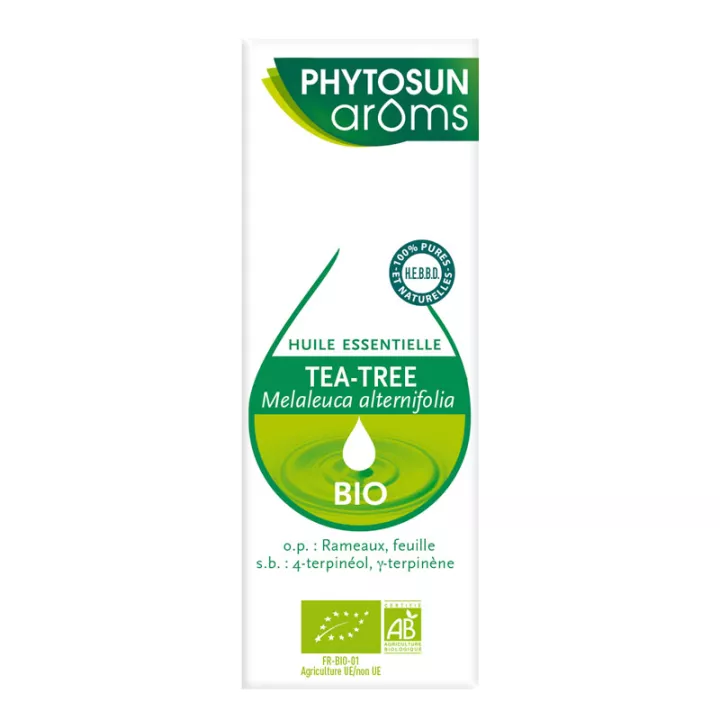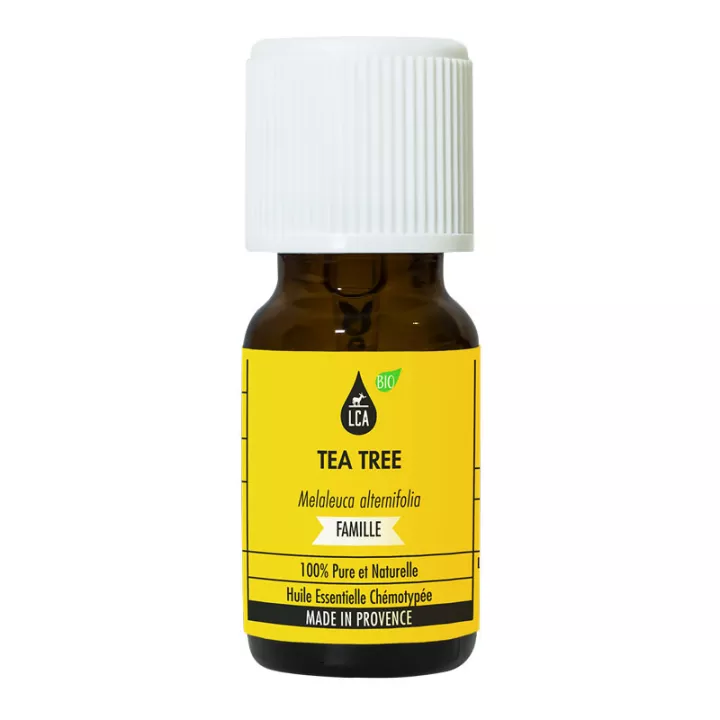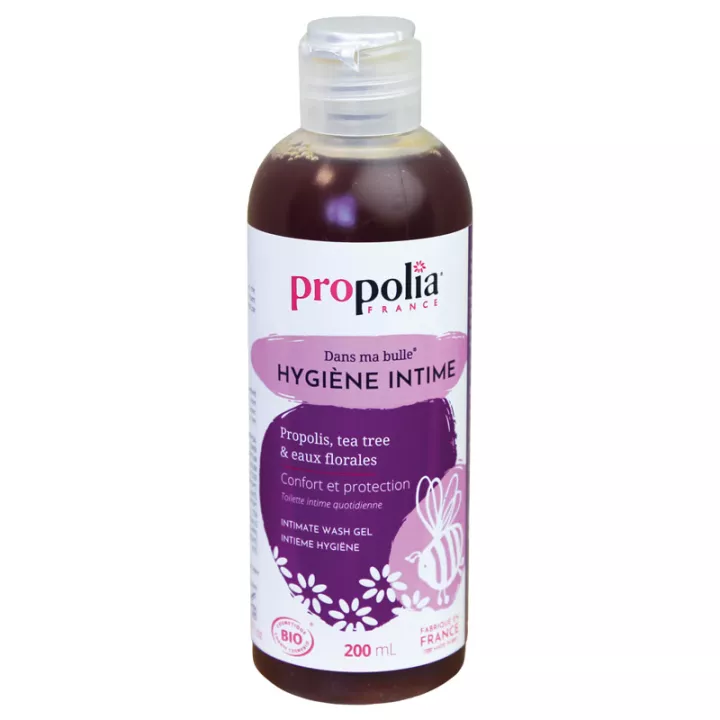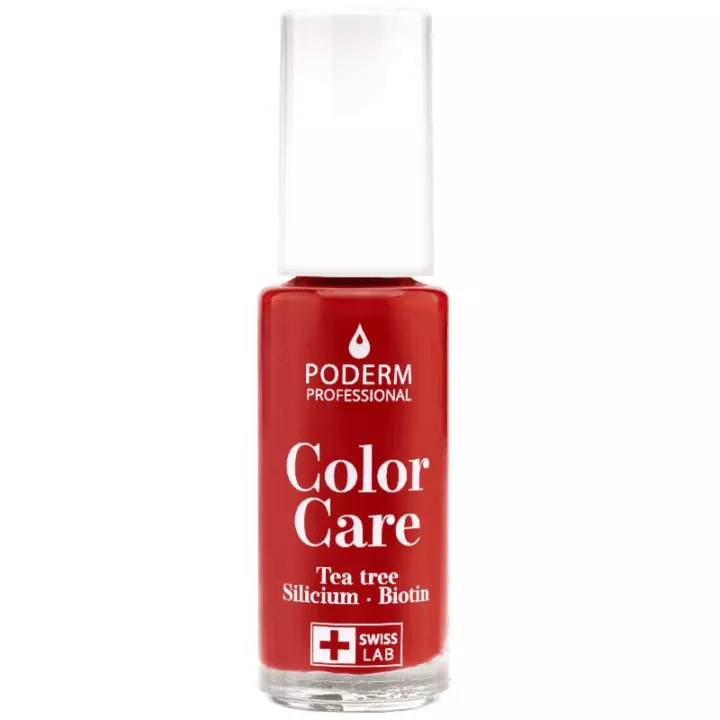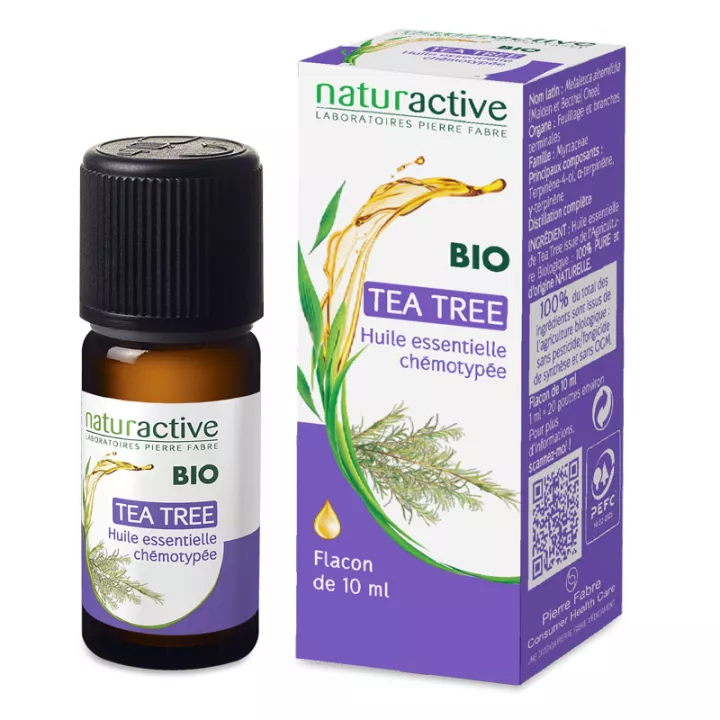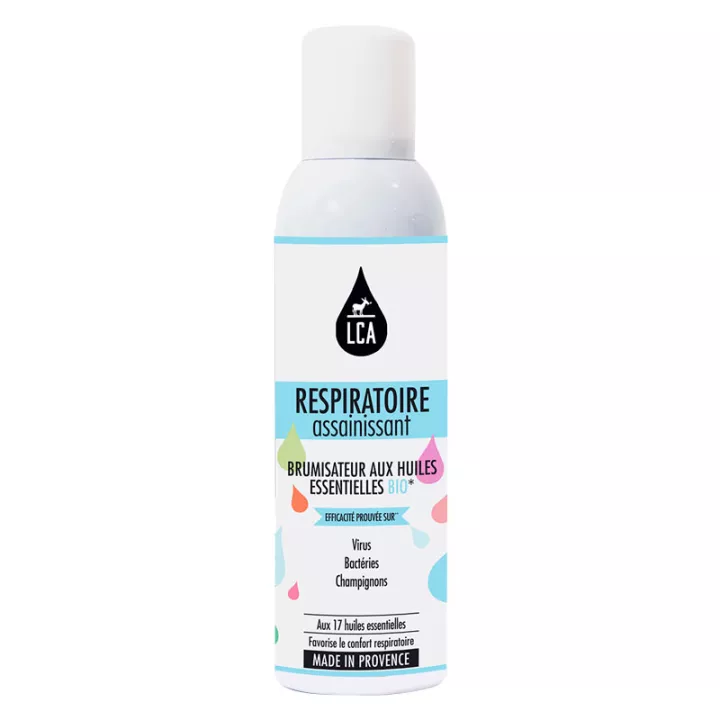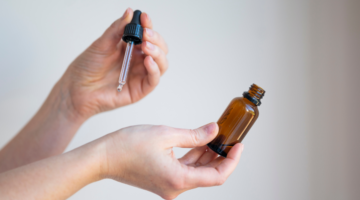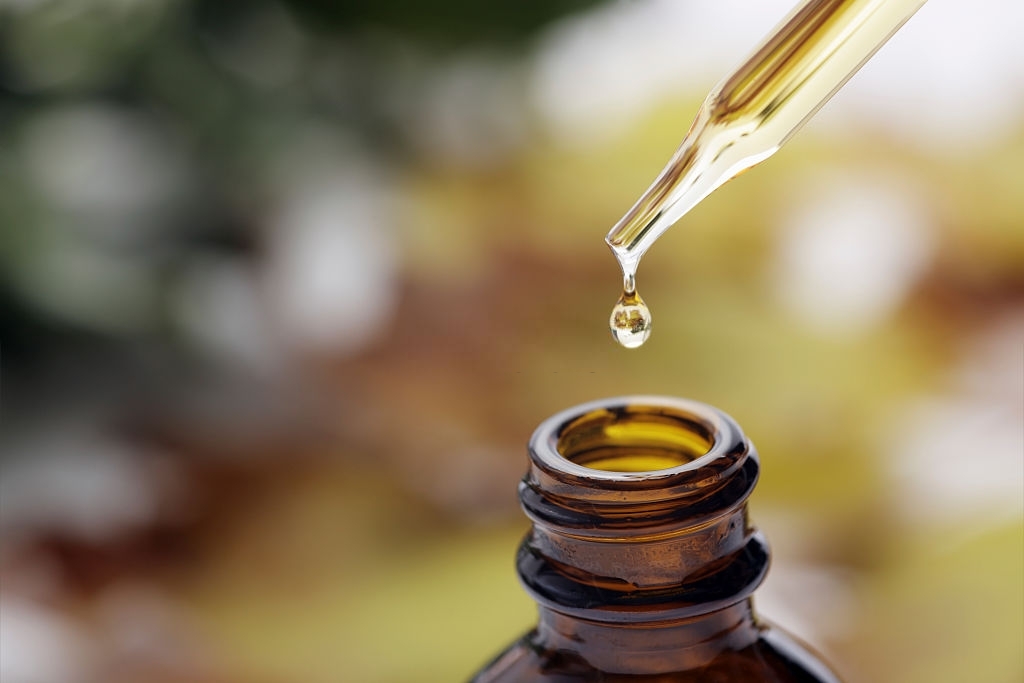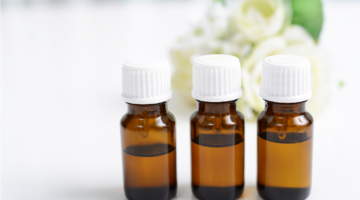What is Phytosun Aroms Tea tree essential oil used for?
A very mild, broad-spectrum purifying agent, Tea tree essential oil is a must-have in aromatherapy. Tea tree essential oil is recommended to accompany infectious episodes, notably to treat angina naturally. Tea tree essential oil is also the best-known treatment for blemished skin.
- Anti-infective, broad-spectrum bactericide, antifungal.
- Venous decongestant, phlebotonic.
- Neurotonic.
- Radioprotective.
TEA-TREE H.E.B.B.D . Essential Oil is indicated for respiratory tract infections such as rhinitis, sinusitis, angina, bronchitis... It is also an excellent local anti-fungal agent for skin, interdigital and genital mycoses.
TeaTree Essential Oil(Melaleuca alternifolia) has major anti-infectious, antibacterial (against Gram+ Staphylococcus aureus, Gram- Colibacillinum, Proteus, Klebsiella, Enterococcus), antifungal (against Candida), antiviral and antiparasitic properties. It is also anti-inflammatory and immunostimulant.
It is an anti-psoriatic plant with anti-inflammatory activity (terpinene-4-ol) and anti-methicillin-resistant Staphylococcus aureus, with lysis and loss of membrane integrity of Staphylococcus aureus, manifested by leakage of ions and inhibition of respiration. It is active in a variety of dermatological conditions (skin and mucous membranes), such as acne vulgaris, seborrheic dermatitis and chronic gingivitis.
It accelerates healing and has an anti-cancerous effect on the skin. It also eliminates pathogenic skin flora while maintaining resident flora. This E.O. is antiasthenic, tonicardiac, phlebotonic, venous decongestant, neurotonic and analgesic. It is also radioprotective (like other Melaleucas).
Organic Tea Tree essential oil is traditionally used in the following therapeutic indications:
- Bacterial and viral infections, mycoses, parasites: Aphthosis, gingivitis, stomatitis, mouth ulcers, pyorrhea, pharyngitis, otitis, rhinitis, sinusitis, bronchitis
- Bacterial, candidal and parasitic enterocolitis, appendicitis
- ENT infections, bronchitis and superinfected emphysema
- Genital infections, urethritis and prostatitis, vulvovaginitis, chronic candidiasis
- Methicillin-resistant Staphylococcus aureus (MRSA) infections, but clinical studies are still lacking
- Hemorrhoids, varicose veins, aneurysms
- Asthenia, nervous breakdown, physical and nervous fatigue, chilliness
- Prevention of radiation burns
- Acne vulgaris
- Athlete's foot (interdigital mycosis caused by dermatophytes)
Phytosun Aroms, the specialist aromatherapy laboratory, also offersSavory Thyme essential oil at the best price in our online pharmacy.
How to use this essential oil
Oral use: ** Through the skin: *** Diffusion: FORBIDDEN
Oral route: 2 drops on a neutral tablet, 3 times a day for adults and 1 drop for children over 7.
Cutaneous use: 2 to 5 drops diluted in a vegetable oil to be applied to lesions 3 times a day. Use only 2 drops for children over 7.
Major anti-infectious and healing action on dermatological skin conditions such as acne aggregata; Solution to be prepared in a pharmacy: Prepare tea-tree essential oil at 5% dilution in a neutral gel base. Apply to the affected area 2-3 times a day. Effect comparable to 5% benzoyl peroxide.
To maintain oral hygiene
1 drop of organic tea tree essential oil on toothbrush; if you don't like the taste, add 1 drop of lemon zest essence.
Respiratory and ENT conditions
prepare an unction with Tea Tree Bio alone or in synergy, or diffuse in synergy.
Intestinal disorders
prepare a toddy with 2 drops of organic Tea Tree essential oil, to be taken before meals 3 times a day for 3 days.
Venous circulation and genito-urinary infections
15 drops of Organic Tea Tree in a bath for 5 consecutive days.
Yellowed and damaged nails (adults)
1 drop of Tea Tree essential oil + 1 drop of Palma rosa, 1 drop of this mixture applied locally every day.
Mouth ulcers
1 drop of Tea-Tree applied locally with a cotton bud.
Precautions for use
- Risk of allergy due to sesquiterpenoids; take care if you have a history of contact dermatitis.
- Not recommended for pregnant or breast-feeding women.
- Beware of possible gynecomastia effects in young boys.
- Not recommended for people with weak kidneys.
- Not recommended for asthmatics without the advice of an allergist.
- Do not disperse
What does it contain?
TEA-TREE is also known as the tea tree. It originates from the humid regions of Australia, and has been used for 3,000 years by aborigines for its medicinal virtues against a wide range of ailments. The leaves are steam-distilled to extract the essential oil.
Melaleuca alternifolia
Production organ: Leaves
Biochemical characteristics: 4-terpineol, y-terpinene
Production method: Complete steam distillation
Origin: Australia
Quality: 100% pure, natural and integral, certified H.E.B.B.D.
Monoterpene alcohols (45 - 50%): terpinene-4-ol 30-45%, alpha-terpineol 1.5-8%, beta-terpineol, para-cymenol-8, cis-thuyanol-4 and trans-thuyanol-4
Monoterpenes: alpha-pinene 1-6% and beta-pinene, myrcene <1%, alpha-terpinene 5-13% and gamma-terpinene 10-28%, paracymene 0.5-12%, limonene, terpinolene
Sesquiterpenes: aromadendrene 0.1-7%, allo-aromadendrene, beta-caryophyllene, viridiflorene, alpha-cadinene, delta-cadinene, ledene
Presentation of Melaleuca alternifolia Organic Tea Tree Essential Oil Phytosun
Available in a 10ml bottle and in an economical 30ml bottle at a reduced price.
Sesquiterpene alcohols: globulol, viridiflorol (traces)
Terpene oxides: 1,4-cineole, 1,8-cineole (0-15%), epoxycaryophyllene II

